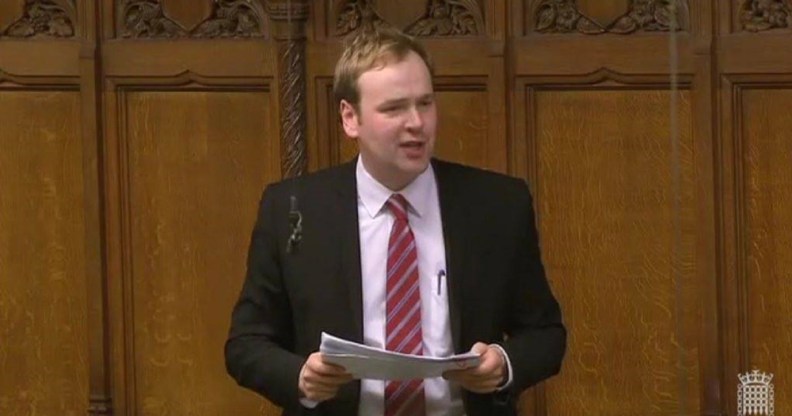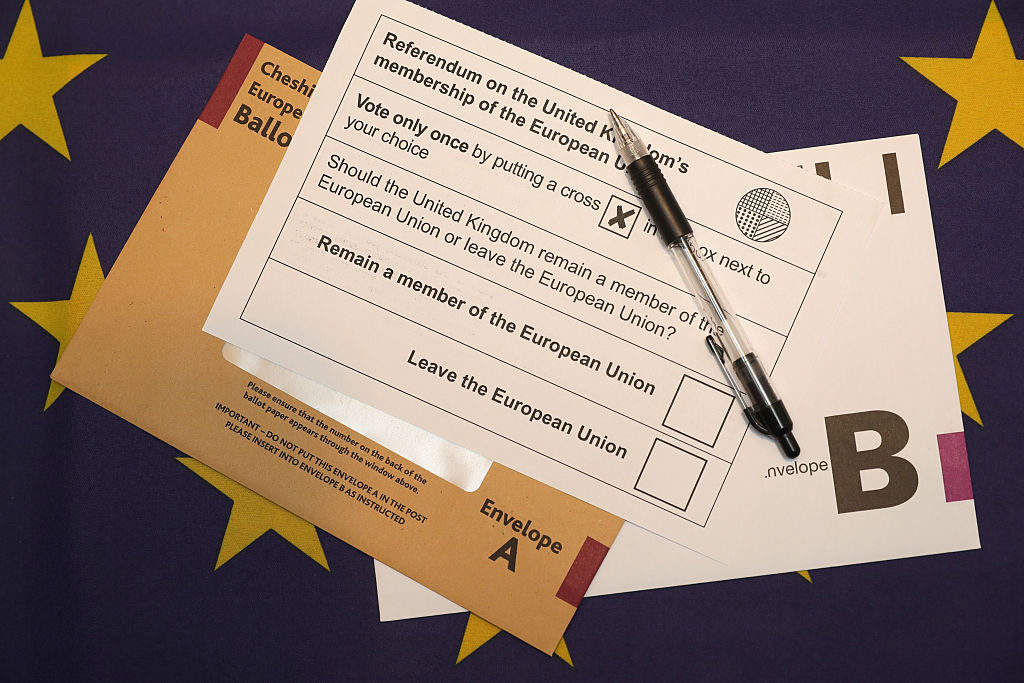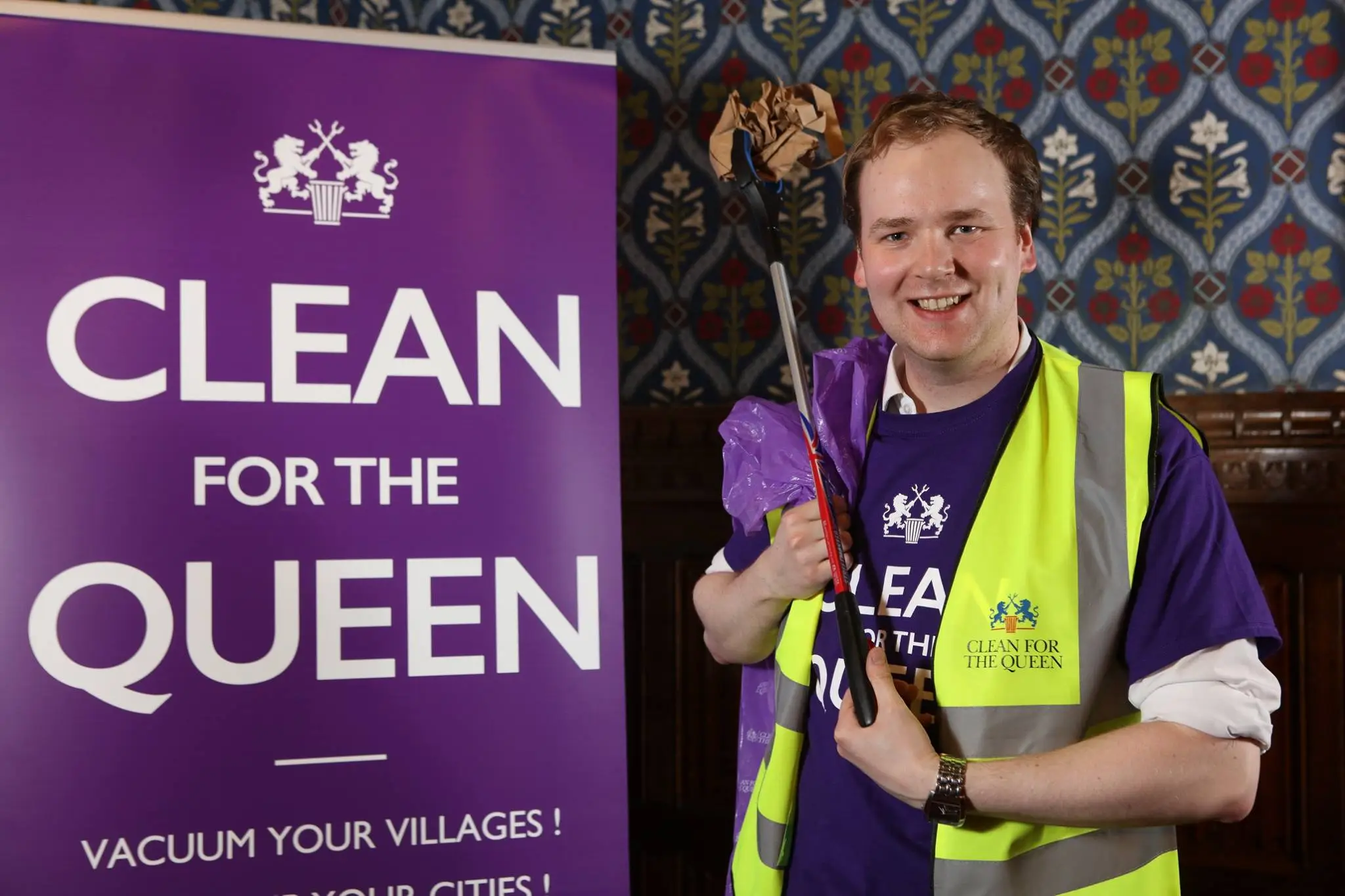William Wragg MP: Our rights don’t come from the EU – we have our own Parliament to thank

Writing for PinkNews, openly gay Conservative MP William Wragg explains why he believes Britain’s proud record on LGBT rights is not connected to the European Union.
We are fortunate to live in Britain, which has some of the most progressive and positive attitudes to LGBT rights in the world.
Thanks to the efforts of campaigners, pressure groups and activists over the decades in securing the support of successive Governments, comprising Conservative, Labour and Coalition colours, we today enjoy greater levels of equality than ever before.
Since the decriminalisation of homosexuality in 1967 we have progressed further in advancing rights for the whole LGBT community thanks to various Acts of the UK Parliament.
We have an equal age of consent for sex (Sexual Offences (Amendment) Act 2000), are allowed to marry whoever we love whatever their sex (Marriage (Same Sex Couples) Act 2013), start a family (Adoption and Children Act of 2002) and are protected from discrimination in society and at work (Equality Act 2010). We also have equal access to IVF, and people have the right to change their legal gender (Gender Recognition Act, 2004).

Yet all of these rights were won in our UK Parliament, decided by your elected representatives, and built on many centuries of championing the rights of minority groups.
They have little to do with the European Union, as some have claimed, and I do not believe that LGBT rights would be in any way lessened by our coming out of the EU.
Our rights in the UK have been secured (and will be advanced further) by having a strong, democratic and accountable parliament in Westminster.
Where you know who your representatives are, can speak with them directly, and importantly can remove us if you choose to at elections at least every five years.
It is true there is still some LGBT battles yet to win here in the UK.
For my part I am a member of the cross-party group of MPs campaigning to lift the ban on gay men donating blood, and I have also recently been working with Terrance Higgins Trust in calling on the Department of Health to make the HIV-preventing PrEP drug Truvada more widely available to those who could benefit from it.
Freedom from the EU will mean MPs in Westminster have a stronger voice and are more democratic, no longer overruled but the unelected and unaccountable bureaucrats, and better able to push for even greater LGBT equality.
It is frequently claimed by many that the EU is some great promoter of LGBT rights and a force for progressiveness, but these claims rarely stand up to scrutiny.
It is a complete myth that these rights have come from the European Union.
Whilst it is true that homosexual acts are legal in all 28 EU member states, (the latest country to decriminalise it being Cyprus in 1998) this is really more of a coincidence than due to any positive steps taken by the EU.
In its history the EU has never issued an edict to decriminalise same-sex activities, member states each did so voluntarily and individually.
The first treaty to reference gay equality was the Treaty of Amsterdam in 1999. This compelled all EU states to adopt, supposedly within three years, legislation to protect people from discrimination on the basis of sexual orientation at work.
Yet the Treaty only requires EU Members to ban anti-gay laws in employment situations; LGBT people across the EU were not protected from discrimination in other areas such as equal access to medical treatment, refusal of being given a double room in a hotel, or protection from homophobic bullying in schools.
This wider set of anti-discrimination laws, thought we have it here in Britain, is even today lacking in two of the EU’s founding members, Germany and Italy, some 16 years after the Amsterdam Treaty came into force.
Decriminalisation aside, when broader LGBT rights are examined across the EU a complete smorgasbord of different levels of freedoms and rights is found.
Only 12 of 28 Members allow same-sex marriages, and seven countries even ban same-sex marriage in their constitutions – including Poland, which ironically is one of the few countries where homosexuality itself had never been illegal.
22 EU countries do recognise civil partnerships, but yet six do not, and gay adoption is legal in only 13 EU states.
Thirteen others have laws meaning forced sterilisation for Trans people who wish to change gender, and one (Cyprus) even bans LGBT people from serving openly in the military.
Taken together, this mixed bag shows that the EU is totally impotent when it comes to promoting gay rights at a central level, and that the bigger driving factor for the varying levels of LGBT equality across the continent has been domestic politics and social attitudes inside individual countries, who have made their own decisions to advance gay rights, or not, at their own pace.
In Britain’s case our social attitudes and parliament were well ahead of the curve in promoting LGBT equality, but this happened totally independent of the EU, and in most cased before the rest of the EU counties (and the world) caught up, and many still have not.
This of course makes sense; it is far easier to implement pro-equality legislation if you only have to persuade MPs from one country, and not 28 different countries, that is it the right thing to do.
Rather worryingly, with the addition of several socially conservative Eastern European countries in 2004, there are now significant and senior political leaders within the EU who take a profoundly anti-gay position and sadly advance the politics of hatred.
To give just a few examples:
- Former Polish President Lech Walesa said last year that gay MPs should ‘sit at the back in parliament or even behind a wall’.
- Lithuanian MP Petras Grazulis, of the Order and Justice Party, favours a complete prohibition on homosexuality, and in 2009 successfully sponsored a Bill banning information from children that ‘agitates for homosexual, bisexual, and polygamous relations’.
- Even a Lithuanian Government Minister, The Minister of Justice, Juozas Bernatonis, has argued in 2014 that same-sex couples in Lithuania were ‘more of an issue of propaganda than reality’.
- Most disturbing of all, in 2014 Inga Priede MP, a member of the governing party praised Nazi extermination of the gay community. She stated that Latvians were in shock about the possibility of same-sex marriage, saying ‘Thank God! The Germans shot them in their time’. – She was thankfully forced to step-down following her comments.
We are acutely aware of the brutality that both spoken and unspoken hatred against gay people can turn into.
Amnesty International has pointed out that ‘Hate-motivated violence has a particularly damaging and long-term effect on victims.
Yet the EU, as well as many of its members, do not recognise crimes based on the perceived sexual orientation or gender identity as hate crimes in their legislation.’
With countries such as Turkey, Serbia, Macedonia, Albania and Montenegro looking to join, LGBT rights in the EU look set to be held back further as those with less tolerant views join in.
If we Vote Leave we take back control from EU politicians who too often don’t share our values.
So as this referendum debate enters its final week, I say to PinkNews readers that, there are many arguments to be made both for staying in and leaving the EU, but the advancement of LGBT rights is really not a reason to Remain.
At best the EU has proved itself weak and almost irrelevant at promoting gay rights, and at worst in serval corners of the Union progress seems to be going backwards.
As a side note, for those concerned about wider Human Rights implications it is also worth noting the European Convention is on Human Rights (ECHR) is wholly separate from the European Union – it stems instead from the Council of Europe, a much larger organisation of 47 members, and of which the UK’s membership is not in question at this referendum – a Brexit would not mean the leaving the ECHR, although this is another red-herring often deployed by Remain campaigners.
If we look beyond the EU we also notice that LGBT rights are well advanced in many countries across the world; with Canada, New Zealand, Australia, South Africa, Israel, Brazil, Columbia, and the USA (varying by sate) having some of the greatest legal protections.
Again these rights have come from within the countries based on domestic social attitudes and not through the enforcement of any supranational organisations such as the EU or even the UN.
But it is perhaps no coincidence that some of the most progressive countries are also the most economically developed. The liberalising of social attitudes often follows closely two other social factors: greater economic wealth and better education.
If Britain does vote to leave the EU next week, we could quickly open up new trade relations up with non-EU countries, and we would also be able to re-design our immigration system to be fairer to migrants wanting to come to the UK from all over the world, and not just biasing it towards those from the EU.
It has never been more difficult for people outside the EU to move to the UK – including many brilliant, talented LGBT people looking to realise their dreams of living here – some of whom also want to come as they face vicious discrimination in their home countries, particularly in parts of the Middle East and Africa.
Outside the EU, the UK could shape its own immigration system, encouraging people who share our values of freedom and equality to make our nation their home.
Thus by providing opportunities for trade, travel, and economic development, as well as opening up access to a British education to more young people beyond the EU, we may be able to spread our progressive and liberal values to a much wider audience.
This would put the building blocks, prosperity and education, in place across a range of developing countries, which the inward looking EU currently holds us back from doing.
We should particularly focus on championing LGBT rights to our partners in the Commonwealth, where in many countries homosexuality is not only still illegal but shamefully punishable by death.
Our membership of the EU has led to Europe becoming the main focus of our diplomatic efforts, yet as the head of the Commonwealth we have the opportunity to re-strengthen these ties around the globe, and an opportunity to show our example of our tolerant and accepting attitude towards LGBT people.

William Wragg wants to press the Commonwealth over anti-LGBT laws
40 years of EU membership has, I believe, far from making us more international, made us inward looking and isolationist.
The European Union is too insular, too bureaucratic and too indifferent to injustice.
While I don’t think LGBT rights in the UK will be at all damaged by voting to Leave, as we owe none of it to the EU in the first place; there is also a chance that the UK will be fairer, better off and a stronger advocate of LGBT rights around the world if we leave the European Union.
William Wragg MP is the Member of Parliament for Hazel Grove, and sits on the Education Select Committee.
RELATED:
Nia Griffith: We can’t turn our back on LGBT Europeans
Crispin Blunt: Don’t be a mug – Brexit won’t risk LGBT rights
Chris Bryant: EU safeguards LGBT rights across Europe
Equalities minister warns of Brexit ‘legal tangle’ on LGBT rights

